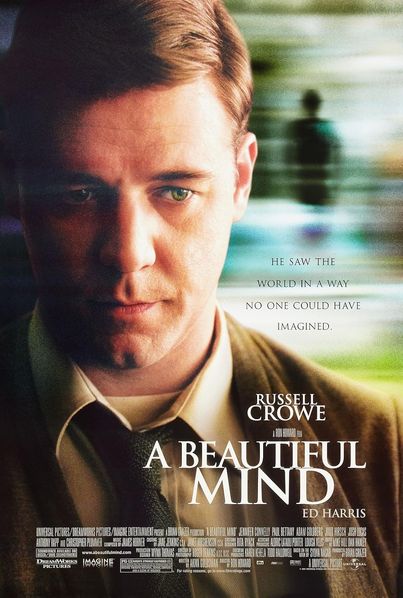A Beautiful Mind (2001)

“A Beautiful Mind” (2001): A Heartfelt Portrait of Genius and Struggle
Released in 2001, A Beautiful Mind is a biographical drama directed by Ron Howard, based on the life of John Nash, a brilliant
mathematician who struggled with schizophrenia. The film stars Russell Crowe as Nash and features Jennifer Connelly as his wife, Alicia.

The story follows Nash’s early years at Princeton University, where he develops groundbreaking theories in game theory. His intellectual brilliance is overshadowed by the onset of schizophrenia, which leads him to experience vivid hallucinations and paranoia. As Nash grapples with his mental illness, the film explores the impact of his condition on his relationships, particularly with Alicia, who remains steadfastly supportive.

Russell Crowe delivers a powerful performance, portraying Nash’s complex character with depth and nuance. The film effectively captures his struggles, triumphs, and the stigma associated with mental illness. Jennifer Connelly’s portrayal of Alicia Nash is equally compelling, showcasing her dedication and love amidst the challenges they face together.’

The film’s direction, combined with a poignant screenplay, emphasizes themes of resilience, love, and the pursuit of truth. The cinematography and score contribute to the emotional weight of the narrative, immersing viewers in Nash’s world and his internal battles.

A Beautiful Mind received critical acclaim and won four Academy Awards, including Best Picture and Best Supporting Actress for Jennifer Connelly. It is celebrated for its sensitive portrayal of mental illness and the complexities of genius.
In conclusion, A Beautiful Mind is a moving and inspirational film that highlights the triumph of the human spirit in the face of adversity. With its outstanding performances and thought-provoking themes, it remains a significant contribution to biographical cinema.











